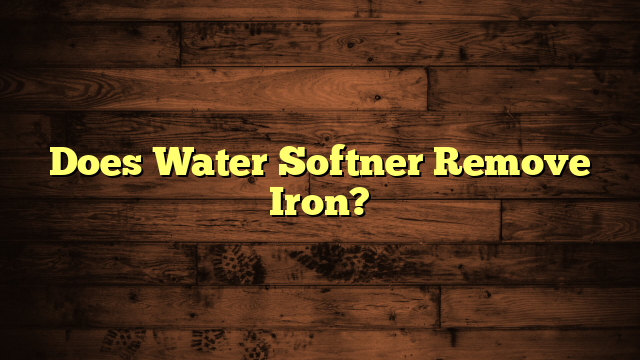Do Water Softner Cleaners Work?
You might be wondering if water softener cleaners actually do what they claim. Many people rely on these products to keep their systems running smoothly, but do they really enhance performance and prolong the life of your water softener? While some users swear by them, others raise concerns about effectiveness and compatibility. It's essential to sift through the various claims and evidence to determine what's best for your needs. What factors should you consider before making a decision?
Key Takeaways
- Yes, water softener cleaners effectively dissolve mineral buildup, enhancing the unit's performance and prolonging its lifespan.
- Cleaners rejuvenate resin beads, restoring their capacity to soften water by dislodging accumulated calcium and magnesium deposits.
- Regular use of cleaners can improve soap lather, clothing softness, and overall water quality, reducing maintenance needs and costs.
- Some cleaners may be expensive and can pose environmental risks if not disposed of properly; choosing the right product is crucial.
- Eco-friendly alternatives, such as vinegar and baking soda, can also effectively clean water softeners while being gentler on the environment.
Understanding Water Softener Cleaners
Water softener cleaners are vital tools for maintaining the efficiency of your water softening system. If you want to guarantee peak water quality, regular use of these cleaners is significant. Over time, minerals and contaminants can build up in your system, hindering its ability to soften water effectively.
By incorporating a cleaner into your maintenance routine, you can help prevent this buildup and keep your system running smoothly.
Cleaning frequency is key to achieving the best results. Depending on your water quality and usage, you might need to clean your system every few months to once a year. If you notice signs like reduced flow or increased hardness in your water, it's a good indicator that your system needs a thorough cleaning.
Choosing the right cleaner is also important; some are formulated specifically for certain types of systems. Be certain to follow the manufacturer's guidelines for both the cleaner and your water softening unit.
How Water Softener Cleaners Work
Water softener cleaners work by using specific chemicals to break down and remove the buildup of minerals that can clog your system.
When you use these cleaners, they help restore efficiency and improve the overall performance of your water softener.
Understanding the mechanism behind these cleaners is key to appreciating their benefits, so let's explore how they function and the advantages they offer.
Mechanism of Action
Many homeowners wonder how water softener cleaners effectively restore the efficiency of their systems. The process relies on chemical reactions that target mineral buildup, primarily calcium and magnesium, which harden your water.
When you add a water softener cleaner to your system, it initiates these chemical reactions, breaking down the deposits that accumulate on the resin beads responsible for ion exchange.
During ion exchange, sodium ions from the softener replace the hardness minerals in the water. Over time, these resin beads can become saturated with minerals, reducing their effectiveness.
Water softener cleaners help rejuvenate the resin by dislodging these minerals and allowing the beads to regain their capacity to soften water. This process is essential for maintaining the longevity and efficiency of your water softening system.
Benefits of Cleaning
Cleaning your water softener offers several key benefits that can greatly enhance its performance. Regular maintenance helps to prevent the buildup of minerals and contaminants that can hinder your system's efficiency.
By establishing a proper cleaning frequency, you'll guarantee that your water softener functions at its best, providing you with soft water that's free of unwanted hardness.
Using effective cleaning techniques, like employing a water softener cleaner, can break down any accumulated debris and restore the resin beads' functionality. This not only prolongs the lifespan of your unit but also improves the quality of water you use daily.
Additionally, a clean softener can reduce the need for additional repairs, saving you money in the long run.
When you clean your water softener, you also enhance its ability to regenerate properly. As a result, you'll notice improved soap lather, softer clothing, and even cleaner dishes.
Overall, prioritizing the cleanliness of your water softener guarantees it operates at peak performance, making your life easier and your water better.
Benefits of Using Cleaners
Using water softener cleaners offers several advantages that can enhance the efficiency of your system.
By incorporating these cleaners into your maintenance routine, you can experience a range of benefits that improve performance and prolong the lifespan of your water softener.
- Improved Softener Efficiency: Regular use of cleaners helps maintain peak performance, allowing your system to work more effectively in removing hard minerals.
- Extended Equipment Life: Keeping your system clean reduces wear and tear, ensuring it lasts longer and saves you money on replacements.
- Fewer Maintenance Issues: With a consistent cleaning frequency, you minimize the risk of clogs and other problems, leading to fewer service calls and repairs.
Potential Drawbacks
While water softener cleaners can provide numerous benefits, there are potential drawbacks to reflect on. First, you need to evaluate the cost. Some cleaners can be pricey, and if you're on a tight budget, this could be a significant factor. Moreover, using these products regularly may lead to increased maintenance costs for your water softener system.
Another concern is the environmental impact. Many cleaners contain chemicals that can be harmful to the ecosystem if not disposed of properly. It's crucial to be mindful of how these substances can affect your local water supply and wildlife.
Here's a quick breakdown of these potential drawbacks:
| Drawback | Explanation |
|---|---|
| Cost Considerations | Some cleaners can be expensive, increasing overall maintenance costs. |
| Environmental Impact | Chemicals in cleaners may harm local ecosystems if not disposed of correctly. |
| Frequency of Use | Regular use may lead to over-reliance on cleaners rather than addressing underlying issues. |
| Compatibility Issues | Not all cleaners work with every water softener model, which can limit options. |
| Health Concerns | Certain chemicals may pose risks if used improperly or in high concentrations. |
Being informed helps you make the best choice for your household.
Customer Testimonials and Reviews
Many homeowners have found that water softener cleaners can make a noticeable difference in the performance of their systems.
Customer experiences vary, but many share positive results that highlight the effectiveness of these products. If you're curious about how these cleaners stack up against each other, product comparisons can provide insight into what might work best for your needs.
Here are three common themes you'll find in customer testimonials:
- Improved Water Quality: Many users report that after using a cleaner, their water feels softer and tastes better, enhancing everyday activities like drinking and showering.
- Reduced Maintenance: Customers frequently mention that their water softeners require less frequent servicing, saving both time and money.
- Extended Equipment Lifespan: Homeowners often note that their systems last longer when they use these cleaners regularly, giving them peace of mind.
Expert Opinions on Effectiveness
Experts generally agree that water softener cleaners can play a significant role in maintaining system efficiency and performance. These cleaners help remove buildup and impurities, which can affect your softener's effectiveness over time. Many professionals recommend using these products regularly to prevent costly repairs and guarantee peak functioning.
When it comes to cleaning frequency, experts suggest a schedule based on your water usage and hardness levels. Generally, cleaning your water softener every six months is a good practice. However, if you notice an increase in mineral buildup or reduced performance, consider increasing the frequency. By following expert recommendations, you can keep your system in top shape, enhancing its lifespan.
It's worth noting that while these cleaners are effective, they shouldn't replace routine maintenance. Regularly checking and replacing the resin beads and salt will also contribute to your water softener's performance.
To summarize, incorporating water softener cleaners into your maintenance routine can provide significant benefits, guaranteeing you enjoy softened water for years to come. Remember, a little effort in upkeep goes a long way in preserving both your water softener and your household's comfort.
Alternatives to Water Softener Cleaners
If you're looking for alternatives to commercial water softener cleaners, natural solutions like vinegar and baking soda can be surprisingly effective.
These household items not only help to clean your system but are also gentler on the environment and your wallet.
Let's explore how you can use these simple ingredients to maintain your water softener without relying on harsh chemicals.
Natural Cleaning Solutions
While commercial water softener cleaners are popular, you might prefer natural cleaning solutions that are both effective and eco-friendly.
These natural remedies can save you money while being gentle on the environment. Here are three eco-friendly alternatives you can consider:
- Lemon Juice: Its natural acidity helps break down mineral deposits, leaving your appliances looking shiny and new. Just mix it with water and run it through your system.
- Borax: This natural mineral works wonders against hard water stains. Add it to your water softener to help soften the water and reduce buildup.
- Washing Soda: Known for its powerful cleaning properties, washing soda can help dissolve mineral deposits. Just a few scoops in your water softener will do the trick.
These alternatives not only provide effective cleaning but also contribute to a healthier planet.
By opting for these eco-friendly alternatives, you're making a conscious choice to reduce harmful chemicals in your home while achieving the same results as commercial cleaners.
You'll find that these natural solutions can be just as effective, if not more so, in keeping your water softener in top shape.
Vinegar and Baking Soda
Vinegar and baking soda are two powerhouse ingredients that can serve as effective alternatives to commercial water softener cleaners. You might already have them in your pantry, and they offer numerous vinegar benefits, such as removing limescale and soap scum. When combined, they create a fizzing reaction that helps lift stubborn deposits from your appliances and plumbing.
Here's a quick comparison of these two natural cleaners:
| Ingredient | Benefits | How to Use |
|---|---|---|
| Vinegar | Reduces limescale, deodorizes | Pour directly into the softener tank or use in a rinse cycle. |
| Baking Soda | Neutralizes odors, softens water | Mix with vinegar for a powerful cleaning paste. |
| Combination | Enhanced cleaning power | Use together for tough build-up; let sit before rinsing. |
Maintenance Tips for Water Softeners
Regular maintenance is essential for keeping your water softener running efficiently and prolonging its lifespan.
By following some simple tips, you can guarantee your softener operates at peak performance.
- Check Salt Levels: Regularly inspect the brine tank and keep it filled with salt to maintain softener efficiency. A low salt level can hinder performance.
- Clean the Resin: Every few months, consider cleaning the resin beads with a resin cleaner. This helps remove buildup and enhances the softening process.
- Inspect the System: Schedule a maintenance check-up every 6 months to a year. A professional can identify any issues and provide insights on maintenance frequency.
Frequently Asked Questions
Can I Use Regular Cleaning Products in My Water Softener?
You shouldn't use regular cleaning products in your water softeners. These products can damage the system and affect its performance. Stick to manufacturer-recommended cleaners to guarantee your water softener operates efficiently and lasts longer.
How Often Should I Use a Water Softener Cleaner?
You should clean your water softener every 4 to 6 months for peak performance. Regular cleaning frequency helps prevent buildup, ensuring your system runs efficiently. Follow these maintenance tips to prolong its lifespan and effectiveness.
Are There Any Age Restrictions for Water Softener Cleaners?
You might wonder if age limitations exist for water softener cleaners. Generally, there aren't specific age restrictions, but always check product safety guidelines to verify it's appropriate for your household's needs and conditions.
Can Water Softener Cleaners Damage Plumbing or Fixtures?
Water softener cleaners can potentially harm plumbing safety and fixture integrity if used improperly. You should always follow the manufacturer's instructions and consult professionals to prevent any adverse effects on your home's plumbing system.
What Is the Cost Range for Water Softener Cleaners?
When considering water softener maintenance, you'll find cleaners typically range from $10 to $30 per bottle. For effective cleaning frequency, it's recommended to use them every 4 to 6 months, ensuring ideal performance and longevity.
Conclusion
In summary, water softener cleaners can greatly enhance your system's performance, even if you're skeptical about their effectiveness. While some might think regular maintenance isn't necessary, remember that neglecting buildup can lead to costly repairs down the line. By choosing the right cleaner and following the guidelines, you can guarantee ideal water quality and extend your softener's lifespan. Embracing these cleaners isn't just about convenience; it's a smart investment in your home's water system.







